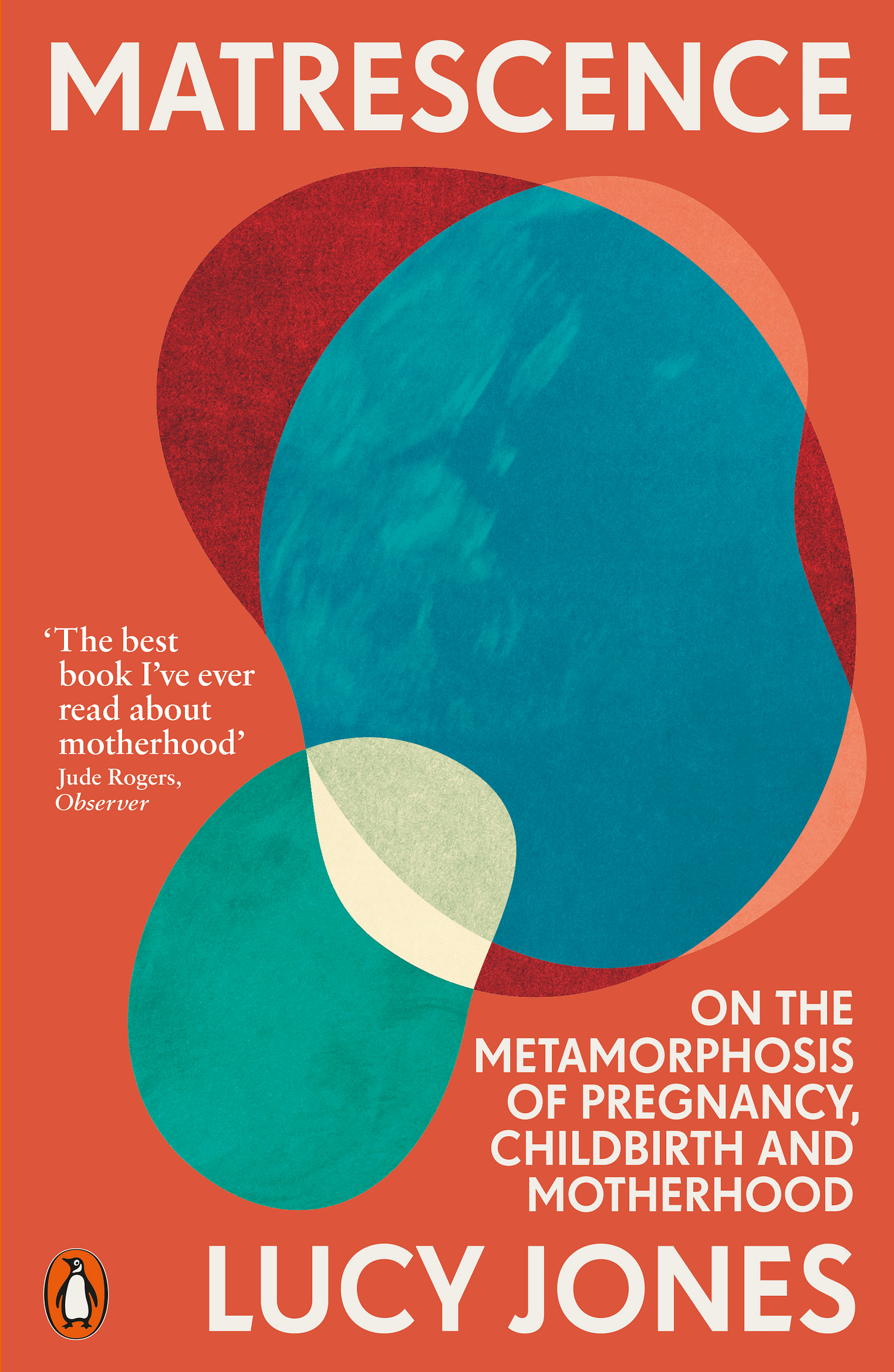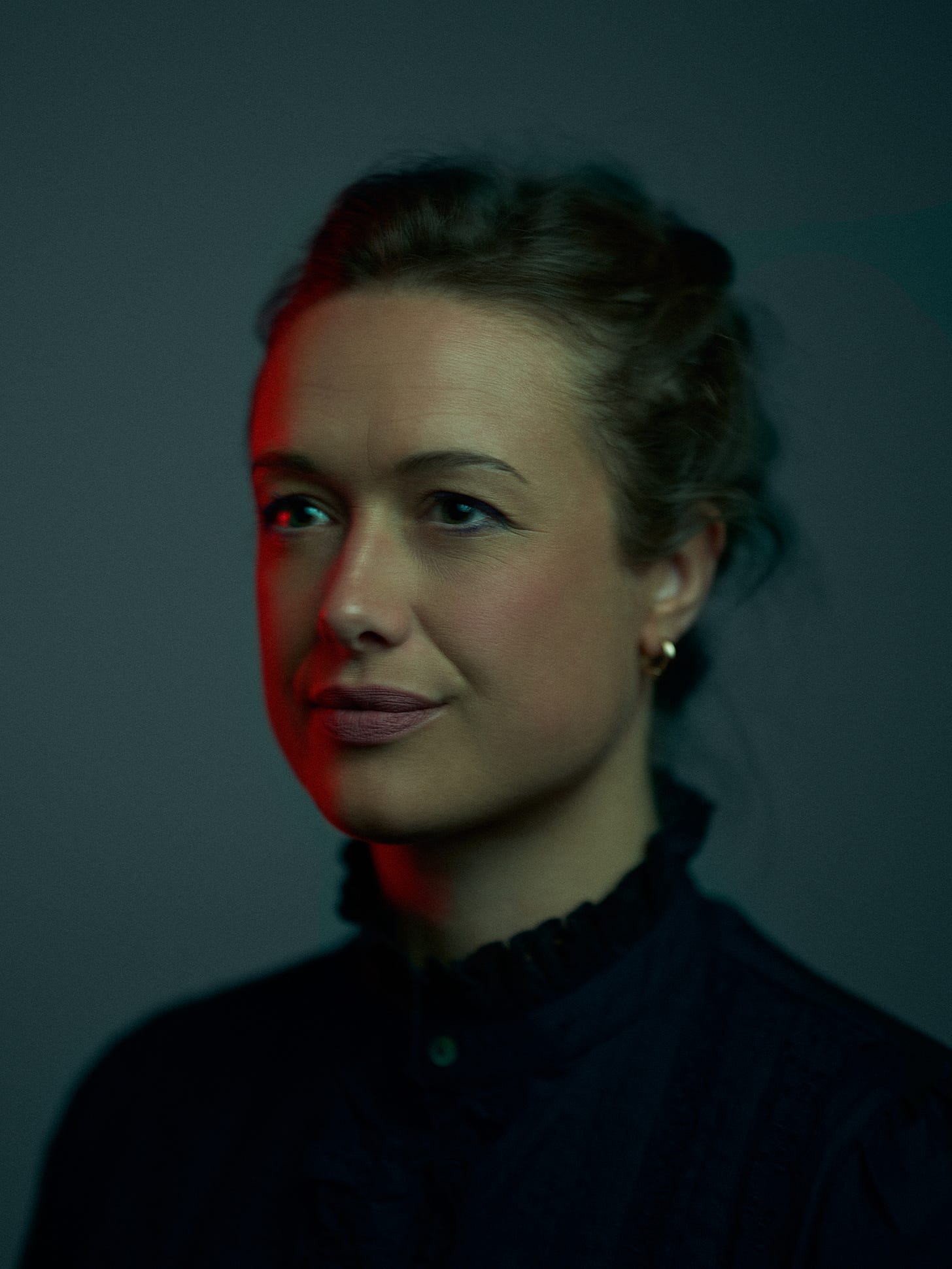Hello,
This month’s Book Club pick is Matrescence: On the Metamorphosis of Pregnancy, Childbirth and Motherhood by Lucy Jones, a book about the profound changes wrought by pregnancy and birth. Combining the biological, the social and the political with exquisite writing, this is a radical revision of a subject veiled in forced cosiness and obfuscation. There’s an exclusive excerpt at the end of this post.
The Book Club will take place on Tuesday 27th August, 6pm UK / 1pm ET / 11am PT
If you’d like to join us live for this or future book clubs, and put questions to the author (as well as enjoying a host of other benefits), become a paid subscriber to The Clearing!
About Matrescence
Matrescence - meaning the emotional, psychological and biological changes that happen after the birth of a child - is an experience that has too often been ignored. Or perhaps ignored is the wrong word, because although all eyes are on mothers, we have rarely seen an accurate representation of the experience. We are offered images of divine connection and pastel colours, of contentment and willing sacrifice. What we experience instead - carefully concealed behind the scenes - are seismic bodily changes, hormonal storms, and impossible levels of exhaustion. This is the motherhood that Lucy Jones not only reveals, but also explains.
The willingly child-free will emerge from this book feeling like they’ve dodged a bullet. But those who have undergone these brutal processes will find a lot of comfort here. For me, it was a relief to finally understand the mechanics at play, and to see motherhood as a profound and permanent metamorphosis. This is a deeply honest, deeply thoughtful book that marries the precision of science (and the gaps in its knowledge) with the chaos of human experience. Perspective-shifting is an understatement.
Buy Matresence through Bookstore.org and support indie bookshops:
Essential links:
Lucy Jones talks to Jen Hatmaker about Matrescence
Rhiannon Lucy Coslett reviews Matrescence in the Guardian
Anna Russell explores Matrescence in the New Yorker
About Lucy Jones
Lucy Jones is a journalist writing about science, health and ecology for publications including the Guardian and the New Statesman. She is the author of Foxes Unearthed, Losing Eden, The Nature Seed and Matrescence.
An extract from Matrescence
When our baby was about nine months old, I had a breakthrough. I happened upon a word I’d never read before, in an article in The New York Times written by a reproductive psychiatrist called Alexandra Sacks. It was a word which brought together everything I was feeling, seeing and reading about.
Matrescence.
‘The process of becoming a mother, which anthropologists call “matrescence,” has been largely unexplored in the medical community,’ Sacks writes. ‘Instead of focusing on the woman’s identity transition, more research is focused on how the baby turns out. But a woman’s story, in addition to how her psychology impacts her parenting, is important to examine, too.’
I breathed.
The article mentions the mixture of emotions that mothers experience. Joy, yes, ‘at least some of the time’. ‘But most mothers also experience worry, disappointment, guilt, competition, frustration, and even anger and fear.’
The idea that this was normal made my shoulders drop in relief for the first time in months. I kept reading.
‘Too many women are ashamed to speak openly about their complicated experiences for fear of being judged. This type of social isolation may even trigger postpartum depression.’
I looked for ‘matrescence’ in my dictionary. Matins. Matisse. Matricide. No matrescence.
I checked my Dictionary of English Etymology. Matriarch. Matriculate. Matrimony. No matrescence.
I wondered if I could at least find any words that associated motherhood with an emotional journey.
I turned to the word mother.
A. female parent.
B. womb, from the fourteenth century, preceded by a cross,
meaning obsolete. And ah, here was something. Hysteria (also with a cross). I looked up hysteria. ‘Functional disturbance of the nervous system, which was thought to be due to disturbing of the uterine functions.’
I looked to the next entry for mother. ‘Dregs, scum’, from the sixteenth century. A ‘mucilaginous substance produced in vinegar by fermentation’, from the seventeenth century. And, ‘original crude substance’. I wondered if these uses had been influenced by the Biblical story of Eve – eating the apple, disobeying God, the original sinner.
I checked other dictionaries. No entries for ‘matrescence’. As I typed it on my computer the word processor insisted on underlining it with a dotted red line. It’s still there now, years later, blotting the page with red. This isn’t a word, it says. This isn’t a thing.
Only, it is. After childhood and adolescence, there is no other time in an adult human’s life course which entails such dramatic psychological, social and physical change.







This book has been life changing for me, and I don’t say that lightly. I’ve also been a mother for 30 years! So excited for the bookclub. Can you remind me where the link is please? I’m a subscriber and have lost the email with it in…😊
Thank you so much Katherine and Lucy! I enjoyed your conversation so much. So much to think about. This was the book I was looking for in my mid to late 20s, when motherhood was on the horizon. I will be recommending this book to everyone!
And thank you to everyone in the chat. Some really interesting stories and perspectives.